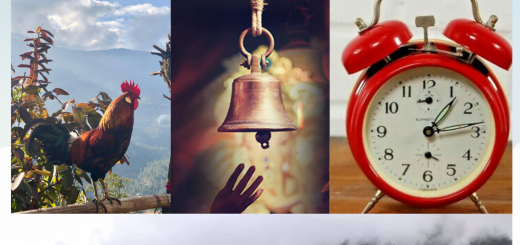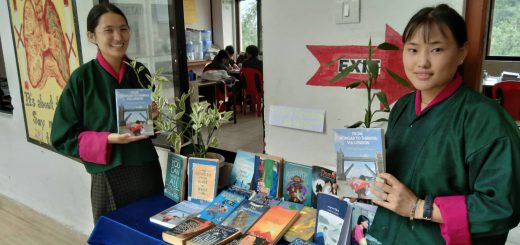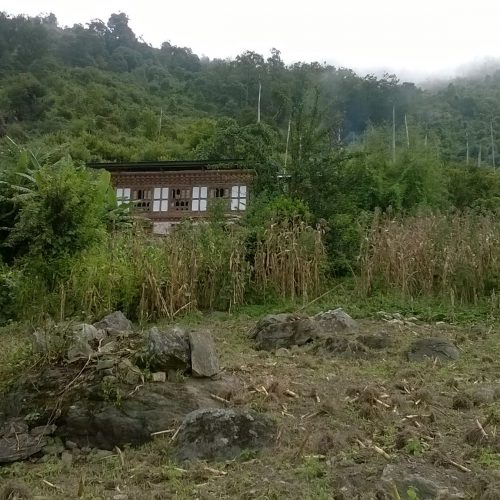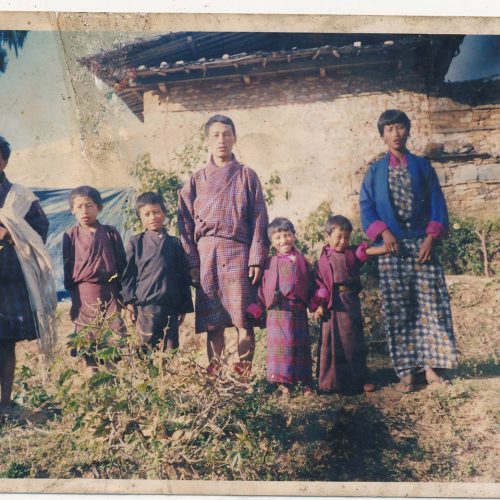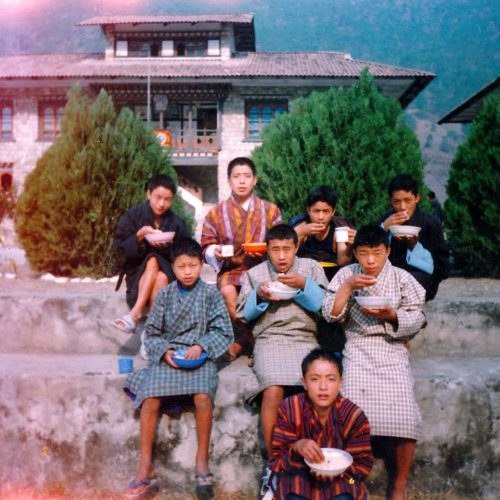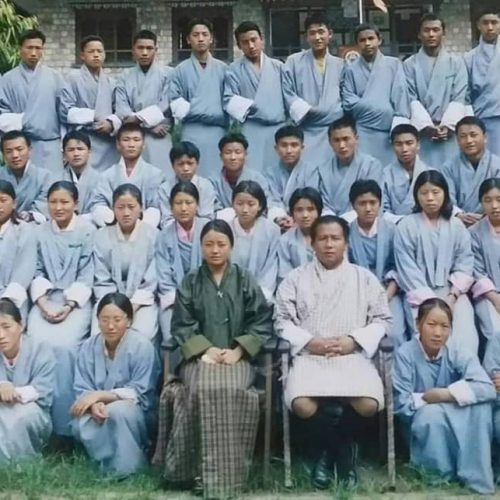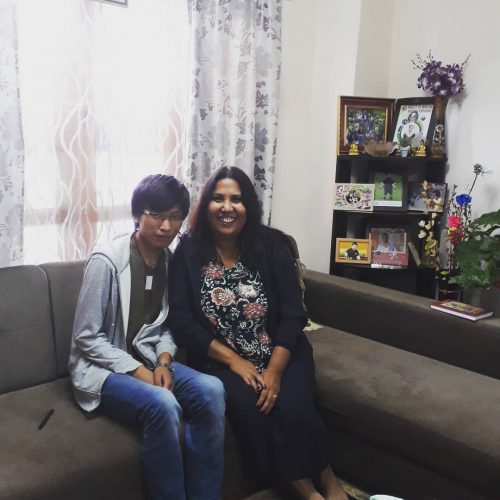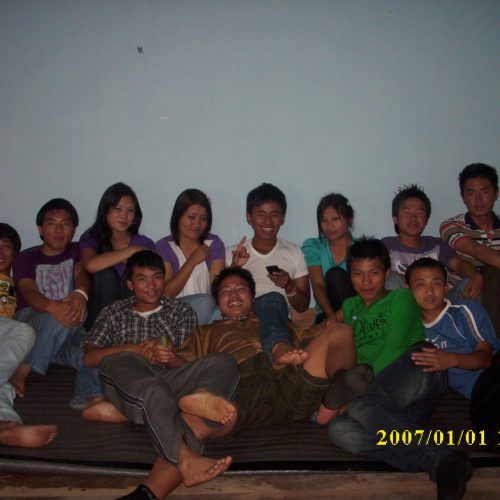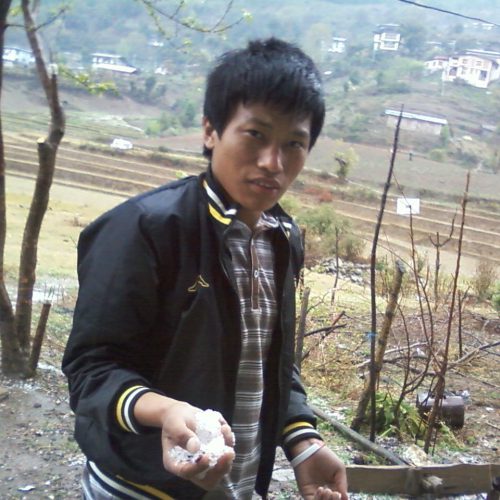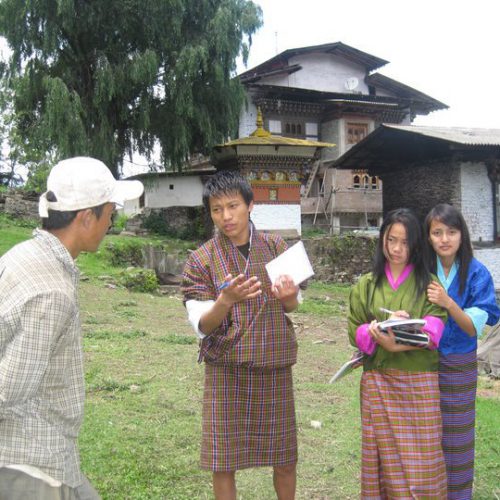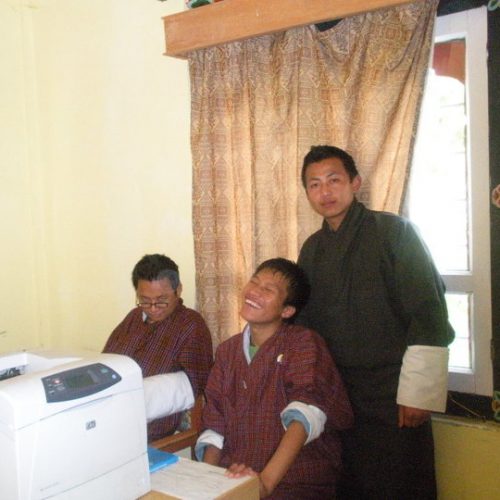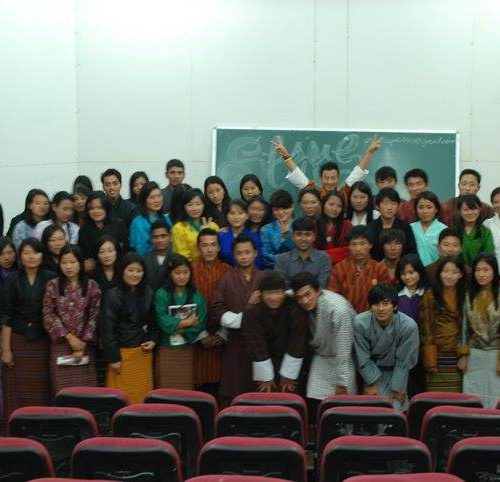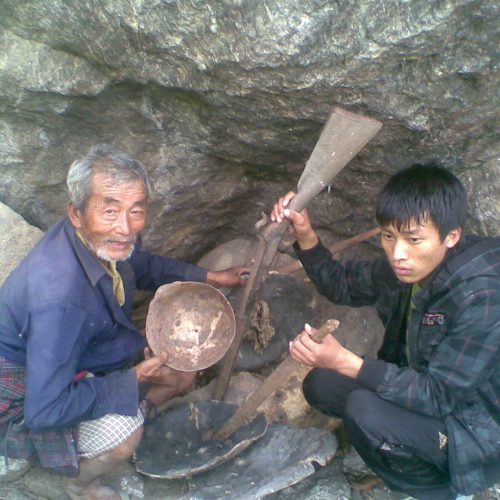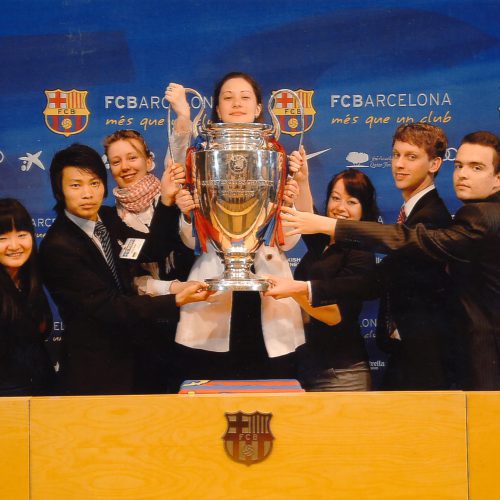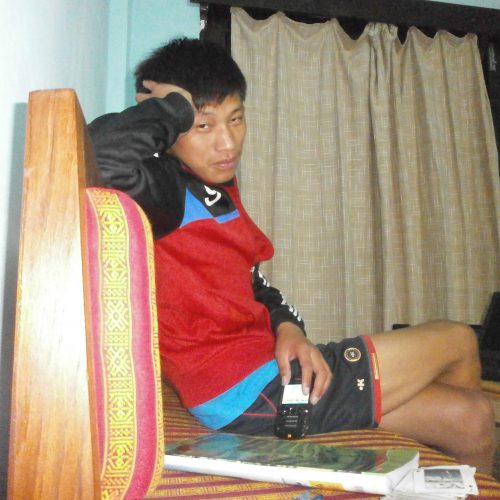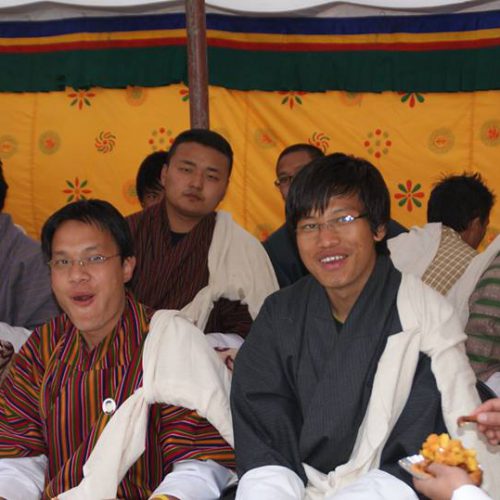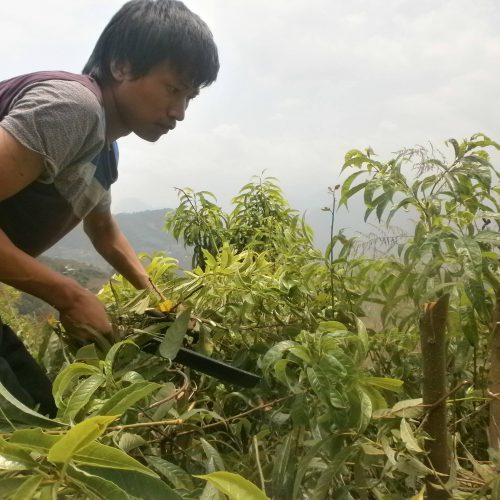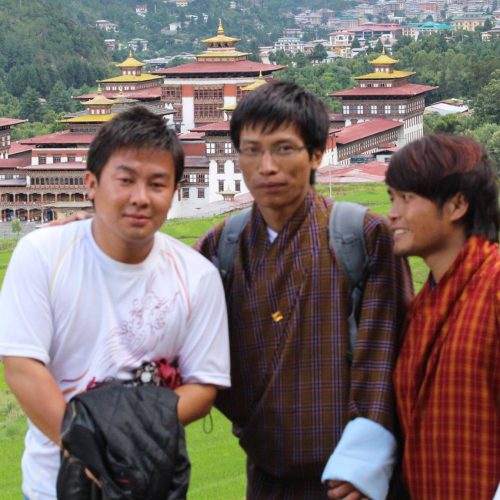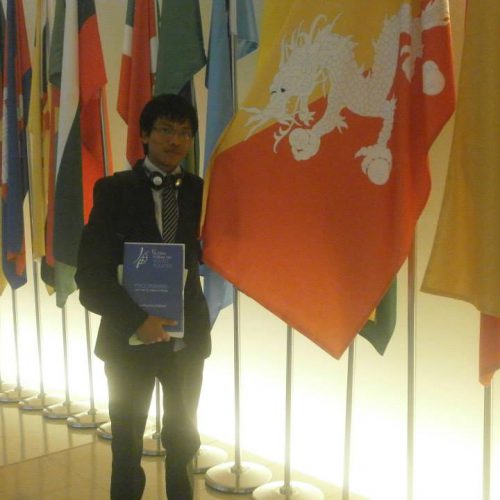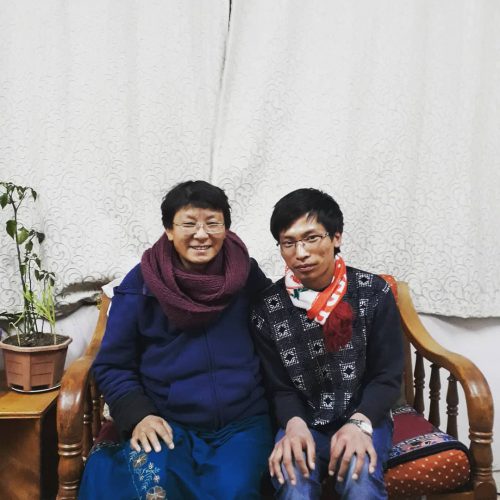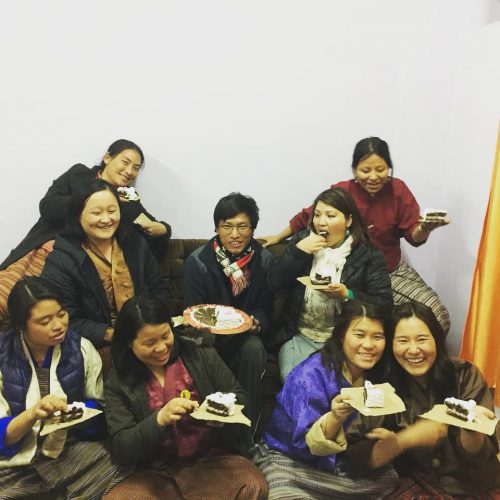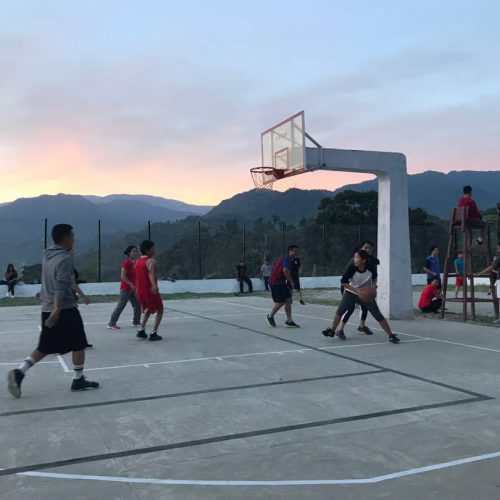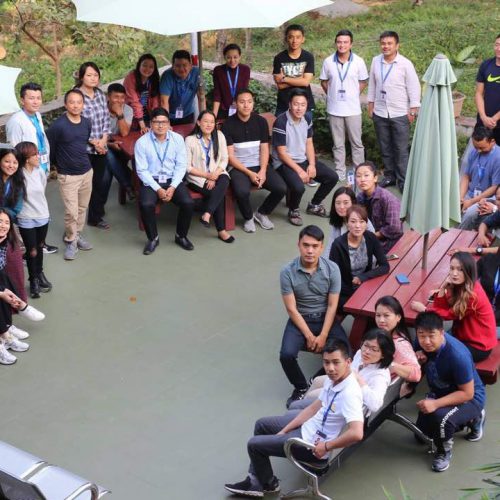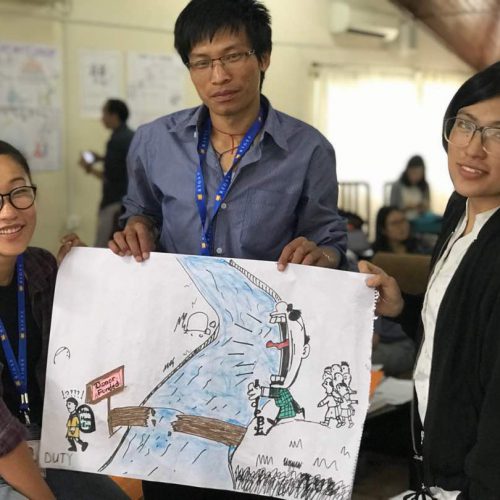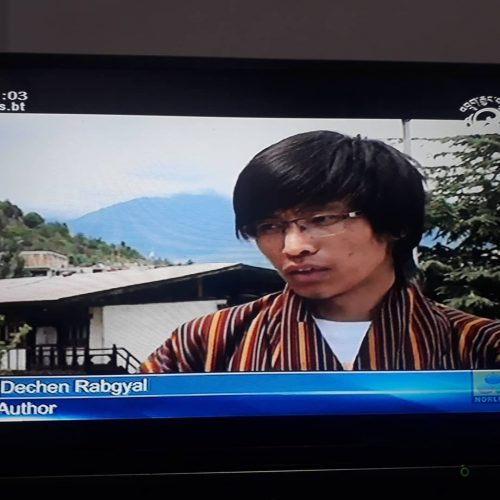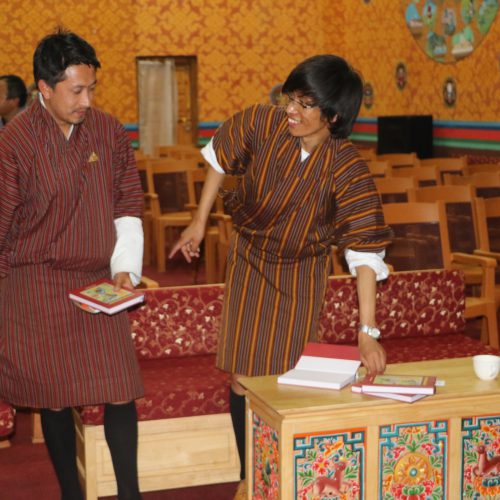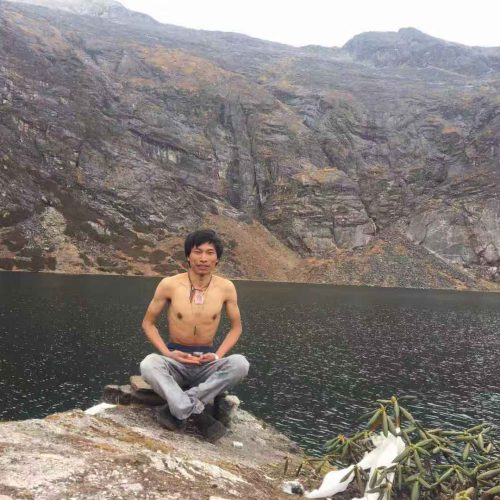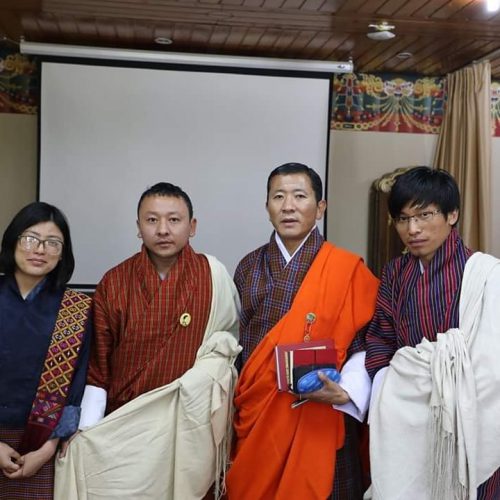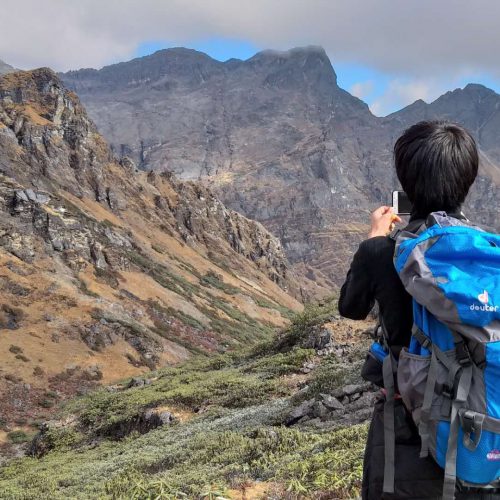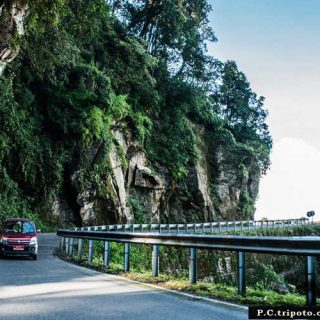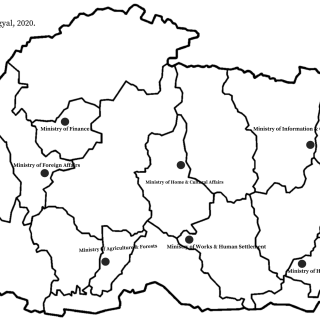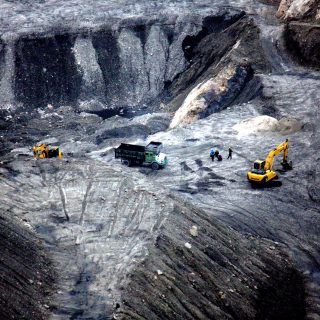Pham-Buzhi- a Concept for Bhutan’s Welfare State
Executive summary
As His Majesty the King steadfastly leads the country in responding to the COVID-19 pandemic, question as to what after the pandemic arises. Drawing inspiring from His Majesty’s continuous service to His People, starting from distribution of rations, Relief Kidu for unemployed and furloughed, and guarding the borders side by side the front-line countrymen, Pham-Buzhi, a concept for building a comprehensive social safety net is floated. The opinion piece situates His Majesty’s current exemplary leadership in His Majesty’s Coronation Address. In order to give a skeletal framework to start with, a matrix/framework covering four approaches to build a robust social safety net, namely, stages of life, sectoral consideration, geographic scope, and occupational status are outlined. In want of in depth study, progressive taxation and prioritisation are identified as possible mechanisms/instruments for comprehensive welfare schemes. The opinion piece argues that the concept, Pham-Buzhi is not only local and culturally relevant but also resonates with His Majesty’s vision and deeds.
Context
The COVID-19 pandemic found its way into the Bhutanese Himalayas, crossing even its virgin mountains. It exposed the structural limitations in our existing governance approach and design. Formal sectors such as the airline industry and tourism are hit hard let alone those freelance and part-time workers. In apparent want of legislative and established policy mechanism to support the furloughed employees and other unemployed groups, His Majesty the King operationalised the Druk Gyalpo’s Kidu Relief. This made me think how robust, resilient and comprehensive our welfare system is integrated in the governance system beyond education and health.
Amidst the looming threat of the pandemic, social restrictions were enforced including the closure of the international border. However, violations were reported and cases prosecuted immediately with convictions ranging from months to some extending to three, four and five years. In what was reported as the ‘new lease of life’, His Majesty the King granted pardon. It instilled in me an understanding of a sense of justice- punishment proportionate to violation/s.
Given the health and vulnerability at old age, His Majesty the King sent vitamins and rations to elderlies across the country. With the lockdowns enforced, concerned about stray dogs going starved, His Majesty initiated ‘mass feeding stray dogs’. As Bhutan waits for the indicated second dose of the astrazeneca vaccine from the Government of India, as shared by the His Excellency the Prime Minister, His Majesty the King is said to have advised that the need of vaccine is more pressing in India than Bhutan. Hence, we don’t follow-up on that aspect. His Majesty the King is frequently on tour to assess the measures put in place. As the measures to contain the virus were put in place, His Majesty converted the Royal Guest House to COVID-19 treatment centre. The Royal Guest House in Mongar is one such example.
Reflecting His Majesty’s addresses and situating His Majesty’s deeds, it took me back to His Majesty’s Coronation Address, 06 November 2008:
“…Throughout my reign I will never rule you as a King. I will protect you as a parent, care for you as a brother and serve you as a son. I shall give you everything and keep nothing; I shall live such a life as a good human being that you may find it worthy to serve as an example for your children. I have no personal goals other than to fulfill your hopes and aspirations. I shall always serve you, day and night, in the spirit of kindness, justice and equality…” [Emphasis added].
Aspiration
Given His Majesty’s continued exemplary leadership on the one hand and issues of persisting youth unemployment, growing issues of unattended elderly, amongst others, it made me think, perhaps we citizens aren’t doing enough.
“I felt helpless. Emotions ran deep. An urgency to do something for my country for what His Majesty has and continues to do for His People. Lyonchen made a brief remark through BBS sharing his concerns on the rising cases and outbreak elsewhere. His Excellency situated his remarks around His Majesty’s service and sacrifice, citizens sense of duty as expressed in their speeches/words vis-a-vis actual conduct. We aren’t doing enough of what we appear and claim to be doing. Those words and prayers need to be translated into action. I can’t wait to…work on Pham-Buzhi, a concept for Bhutan’s welfare state dedicat[ed] to His Majesty. Hopefully, this can trigger thought, alternative pathways to reduce the sheer burden His Majesty the King shoulders” [Journal entry dated 21 May 2021].
The concept of Pham-Buzhi (Parent-Child relationship) is chosen for two specific reasons. First, I drew inspiration from His Majesty the King’s Coronation Address. Second, it is relatable to every individual to the social support system which is inbuilt in Bhutanese family system. Ideally, every member of the family makes an effort for the collective good of the family, at different times. However, with changing forces of time, the knot of traditional family structure is getting loosened entailing public policy intervention. In that light, borrowing a traditional family value system in the state’s policy instrument is expected to have two visible impacts. First, the value system that has been passed down the generation can be channeled through state machinery. Second, it is local and culturally relevant. Hence, it is relatable in Bhutanese context- does not require system and value adjustment.
I made an attempt to contextualise His Majesty’s Coronation Address in His Majesty’s exemplary leadership to the pandemic. Among others, in shouldering a duty of a son, His Majesty sent vitamins and rations to elderlies. Druk Gyalpo’s Kidu Relief is a manifestation of protection a parent would afford to his/her children. Touring the country, guarding the border side by side frontline workers can be likened to a brotherly camaraderie. Starting a mass feeding stray dogs epitomises the quality of a good human being. In acknowledging the pressing need of vaccines in India, the Royal Pardon and the Kidu for all, I saw the principles of kindness, justice and equality in practice, respectively. [I simply tried to contextualise His Majesty’s deeds by giving certain labels for easier grasp in relation to the proposed concept of Pham-Buzhi].
Second, to give a context of a familial bond, my personal anecdote is shared. However, I claim neither authority nor knowledge to draw a general conclusion. This is simply a traditional value system that has been transmitted to me by my grand-parents and parents in my lived and living experiences of countryside, Drepung, Mongar. Differences would arise. But they would always seek pathways to reach a solution that best serves the family. As a parent, they would always try to treat their children equitably. I saw my grandparents divide inheritance equitably to my parents and their siblings. As a daughter and a son, I saw my parents try not to let down their respective parents despite having some share of disappointments.
From Inspiration to Institution- a Concept for Bhutan’s Welfare State
With these in mind, I sought a book recommendation on a welfare state from a close observer of Bhutan, Dr (PhD) Wolfgang Drechsler. A book that is ‘…the closest to Bhutan…’ “…I think that’s really impossible; Bhutan is so unique that differences will be bigger than parallels…,” Professor responded. Nonetheless, he recommended a couple of books for which I am grateful. His comments made me introspect. Is my tendency and approach to seek insights from external sources suggestive of my inability to draw insights from our own values? Is my approach my personal shortcoming or a reflection of general tendency among Bhutanese?
I travelled back in our recent past. His Majesty, the Fourth Druk Gyalpo’s pronouncement,
“Gross National Happiness is more important than Gross Domestic Product”
is so profound. But somehow I haven’t been able to connect my concept of ‘Pham-Buzhi’ with such a timeless vision. Retrospectively, my thinking was blurred with my preoccupation of the mines and minerals management bill which supposedly took ‘domestic product’ precedence over ‘national happiness’. To an extent, I felt my attempt to draw insights of welfare state from outside was also to do with an increasing usage of material prosperity as a dominant indicator, and an emphasis on quantifiable growth.
Is our attempt to develop indicators to measure Gross National Happiness (GNH) through its 9 domains and 33 indicators a move towards quantifying the growth, an idea proposed by the developed countries. On second thought, I felt, cannot we say that some things are beyond measurable, hence cannot be quantified. My limited awareness of Bhutan’s history vis-a-vis her interaction with the rest of the world suggests that our international standing is built around its ‘unique approach’ to governance, the profundity of GNH and our world view. Otherwise, why would the 7 billion people on the earth and powerful country such as the United States of America and the United Kingdom would care that there is a country called Bhutan in the Himalayas.
This takes me farther back in history vis-a-vis Bhutan as the last standing Buddhist Kingdom (in the region). Four immeasurable (ཚད་མེད་བཞི།), viz. love (བྱམས་པ།), compassion (སྙིིང་རྗེ།), joy (དགའ་བ།) and equanimity (བཏང་སྙོམས།) are core teachings of Buddhism. Unless separation of religion from politics hinders, I don’t see such values reflected in some of the legislations. Otherwise, spiritual life is an integral part of Bhutanese lives, generally. Daily wage earners are case in point. Every new Parliament commences with the pay revision. How many wage raises did we witness and what percentage? While I don’t wish to sound cynical about the politicians, generally, emphasis (minimal) on wage earners and the like is quite disappointing. Compatriots such as Chandra Maya and Dil Kumar Mongar were surviving on Nu.215/- per day. Our Members of Parliament draw not less than a monthly gross salary of Nu.120,000/-. While MPs must be shouldering responsibilities critical in the nation building, these groups of people, however minimal be, also play a bit of role.
On that premise, general statement that elected representatives represent the needs of these groups of people (wage earners) is not convincing. Low wages have implications beyond self-sustenance. Education in Bhutan is free but there are a significant amount of incidental costs parents bear. Parents’ low wage potentially affects the educational pursuit of their children. Unless I am unaware of other important factors, reasons of alimony and thrimthue is not a sound argument for not raising the wage. Can we as a country afford such income disparity? What would the Historical Buddha say? Or should we leave as it is where those least advantaged find nothing but consolation in karmic debt? Buddhism in itself evolved against the backdrop of a hierarchical and unhealthy caste system. Equally discomforting is our service delivery. Amidst the pandemic, in addition to already low wage, Chandra Maya and her coworkers weren’t paid their salary for two months. Even in absence of institutional check and balance to ensure minimum level of professionalism in service delivery, empathy towards the next person should encourage the professionals serving ‘Tsa-Wa-Sum’ to live up to the minimum service standards.
As the knot of age-old extended and nuclear family structure gets loosened, unattended and homeless elderly is an emerging public policy topic. Does the state have a role? With the schools across the country closed after the outbreak of the pandemic in March 2020, online teaching was started. However, “some 16,884 students who did not have access either to television or Internet apparently had to figure out of their own, until Self- Instructional Materials (SIM) was launched on 02 May 2020” (Rabgyal, 2021). That is more than the total population of three Dzongkhags, Gasa, Haa and Lhuntse (individually though). Even Bumthang, Trashi Yangtse and Zhemgang have just over 17,000 people, each (Statistical Year Book, 2020). The point here is, students equivalent to or more than a population of one Dzongkhag did not have access to formal education for about two months when the rest did have.
Further, with information, communications and technology (ICT) fast changing the workplace and work environment, topics such as universal basic income (UBI) are being discussed and being tried elsewhere. Despite ongoing furlough in addition to persisting youth unemployment, the parliament and government appear to have no appetite to bring legislative reforms concerning labour and employment. Perhaps the 2007 Labour and Employment Act of Bhutan address such emerging issues. There is Build Bhutan Project but I see it as a policy instrument within the ambit of the executive government for which the status would change as and when the government or relevant agency deems so. How long can the Druk Gyalpo’s Relief Kidu sustain?
What is the solution? In the absence of a concrete and comprehensive operational mechanism of my proposed concept of ‘Pham-Buzhi’, I considered a matrix/framework comprising of four approaches, namely, stages of life, sectoral approach, geographic scope, and occupational status. First, the stages of the life approach would cover people of all ages and gender from conception to old age. Second, the sectoral approach would cover a broad area, including social sectors in health and education, agriculture, energy, among others. Third, the geographic space is expected to consider the needs of different regions, clusters and Dzongkhags. Fourth, occupational status will cover all people of the working age group including the unemployed (hence the term , ‘status’, not ‘group’.)
Welfare is commonly associated with giving? How and from where will it be sourced? As I write, I see two pathways, taxation policy and resource prioritisation. First, adopting (progressive) taxation policy appears to be the last thing the elected government and representatives (in Bhutan) would do. From campaign trails to parliamentary deliberations, progressive taxation is hardly heard. At times, I wish there was a wish-fulfilling tree, real time. Nordic countries, well known for strong state administered welfare and social support systems are reported to have higher tax rates. Second, resource prioritisation is key. Given our status of a developing country, needs are varied and multiple. In trying to address all challenges and needs at once, some projects are left half-way through. Is there a possibility to identify strategic areas which would have a trickle down effect?
To an extent, the current approach of town and cities development needs to be revisited. Can we afford to have black-topped road connecting almost building (or clusters of it) in towns and cities, repaired frequently? On the other hand, we have certain parts of the country, villages for example, without reliable (all season) infrastructure connectivity. Seen within the concept of my proposed framework, the current categorisation of ‘towns and cities’ vis-a-vis ‘villages’ in itself needs to be revisited. First, it treats life in towns and cities superior. If we are to follow the civilisational standard the developed countries adopted and prescribed, cities are superior and luxurious. It is noteworthy that cities are home to billionaires as well as beggars. Related to it, by subscribing to such a civilisational standard and divide, it has implications on budget allocation and categorisation of economic activities, among others. Such standards are socially constructed. Can Bhutan have her own standards – a well built infrastructure in vibrant rural villages thriving side by side growing urban settlement. Or am I dreaming of utopia?
Pham-Buzhi or Welfare State- why now?
I have three brief responses. First, on 21 May 2021, His Excellency the Prime Minister, citing the sheer responsibility His Majesty the King shoulders, expressed possible health implications too much stress can have on a person. From provision of vitamins and rations to elderlies, Relief Kidu to unemployed and furloughed, and De-Suung National Water Service Project, the responsibility is huge and duty a gargantuan. Had there been a comprehensive welfare scheme, the burden on His Majesty would have been much lesser.
Second, every crisis gives the opportunity to ‘build back stronger/better’. His Majesty the King has shown us what needs to be done and how it can be done. As we (I at least) have general tendency to draw insights from the outside, ‘the New Deal’ in the United States of America and ‘the Beveridge Report’ in the United Kingdom may help us a bit to contextualise how a comprehensive social safety net can be built.
Third, if we can get a Pham-Buzhi or a similar concept institutionalised as a part of the government’s effort to serve the people, it is expected to have two lasting legacies. First, the exemplary leadership His Majesty the King continues to exhibit will be integrated as a government’s policy instrument for perpetuity. Related to it, given the welfare scheme as being people centric covering all walks of life, it will be a fitting tribute to His Majesty the King, affectionately revered as ‘the People’s King’.
Disclaimer: I neither claim authority nor have expertise in public policy. I simply wrote if it can trigger some thoughts so that we, as citizens, collectively, build a robust social safety net which His Majesty the King has been championing for. Please feel encouraged to leave your comments and feedback.

